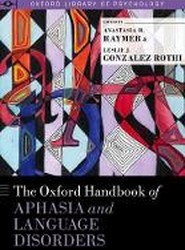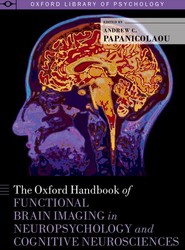(To see other currencies, click on price)
MORE ABOUT THIS BOOK
Main description:
Awareness of the importance of exercise and physical activity to optimal physical and mental health has never been greater. It is widely acknowledged that physical inactivity is a leading cause of death, yet statistics show less than 50% of Americans participate in regular physical activity. This information highlights the public health challenge of increasing participation in physical activity to enhance physical health and to buoy the psychological benefits
associated with physical activity.
The Oxford Handbook of Exercise and Psychology is an authoritative and comprehensive presentation of the breadth and depth of empirical contributions utilizing state-of-the-science theories and approaches in exercise psychology. Chapters are authored by leading investigators across the globe who have made significant scientific contributions addressing the behavioral aspects of physical activity. Sections of the book address the effects of physical activity on mental health; knowledge
gathered utilizing psychobiological perspectives; behavioral factors that impact exercise motivation; scientific contributions addressing the physical activity benefits with special populations, including individuals with physical disabilities, older adults and cancer patients; and promising areas for
additional investigation. Each chapter presents a summary of scientific advancements in the topic area as a foundation for future investigation.
Fueled by a broad range of disciplines and interdisciplinary approaches, the field of exercise psychology is growing, and this comprehensive handbook will be the perfect resource for students, researchers, and physicians interested in exercise motivation and the mental health benefits of physical activity.
Contents:
Contents ; I. Context, Issues, and Perspectives in Exercise Psychology ; 1. Exercise Psychology: Understanding the Mental Health Benefits of Physical Activity and the Public Health Challenges of Inactivity ; Edmund O. Acevedo ; 2. Physical Activity Epidemiology ; Ian Janssen ; II. Exercise Psychology and Mental Health ; 3. The Ultimate Tranquilizer? Exercise and Its Influence on Anxiety ; Steven J. Petruzzello ; 4. Body Image and Exercise ; Kathleen A. Martin Ginis, Rebecca L. Bassett, and Catherine Conlin ; 5. Physical Activity and Cognitive Function: Theoretical Bases, Mechanisms, and Moderators ; Jennifer L. Etnier and Jeffrey D. Labban ; 6. Exercise and Health-Related Quality of Life ; Brian C. Focht ; 7. Physical Activity as a 'stellar' positive psychology intervention ; Kate Hefferon and Nanette Mutrie ; III. Exercise Psychology and Psychobiological Perspectives ; 8. Psychoneuroendocrinology and Physical Activity ; Mark Hamer ; 9. Muscle Pain During and Following Exercise ; Christopher D. Black ; 10. Cardiovascular Health Implications of Combined Mental and Physical Challenge ; Edmund O. Acevedo, Heather E. Webb, & Chun-Jung Huang ; IV. Psychology of Exercise Motivation ; 11. Personality and Physical Activity ; Ryan E. Rhodes and Leila A. Pfaeffli ; 12. Psychosocial Influence ; Martin S. Hagger ; 13. Theoretical Approaches to Exercise Promotion ; David M. Williams & Bess H. Marcus ; 14. Theoretical Approaches to Physical Activity Intervention ; Claudio R. Nigg and Karly S. Geller ; 15. Social Cognitive Models ; Ryan E. Rhodes and Rachel Mark ; 16. Exercise is a many-splendored thing but for some it does not feel so splendid: Staging a resurgence of hedonistic ideas in the quest to understand exercise behavior ; Panteleimon Ekkekakis and Manolis Dafermos ; V. Exercise Psychology in Special Populations ; 17. Exercise Psychology and Physical Disability ; Jeffrey J. Martin ; 18. Physical Activity and Exercise in Older Adults ; Louis Bherer ; 19. Children's Motivation for Involvement in Physical Activity ; Robert J. Brustad ; 20. Exercise Psychology and Children's Intelligence ; Phillip D. Tomporowski, Jack A. Naglieri, and Kate Lambourne ; 21. Cancer Patients ; Amy E. Speed-Andrews and Kerry S. Courneya ; VI. Exercise Psychology: On the Horizon and into the Future ; 22. Psychology of Resistance Exercise ; Daniel B. Hollander and Robert R. Kraemer ; 23. Tai Chi as an Alternative Mode of Exercise Activity for Older Adults ; Fuzhong Li
PRODUCT DETAILS
Publisher: Oxford University Press (Oxford University Press Inc)
Publication date: June, 2012
Pages: 544
Dimensions: 254.00 x 260.00 x 32.00
Weight: 1128g
Availability: Available
Subcategories: Psychology, Psychotherapy, Sports Medicine
From the same series
Thomas H. Ollendick
Robert F. Krueger
Michaela A. Swales
Pascal Belin
Shaun Gallagher
Kieran C.R. Fox
W. Stewart Agras
Shane J. Lopez
Leslie J. Gonzalez Rothi
Maryanne L. Fisher
Jane Edwards
Seth J. Schwartz
Stephen G. Harkins
Andrew C. Papanicolaou
Robert J. DeRubeis
Thomas A. Widiger
Michael Waldmann
Matthew K. Nock
Stephen M. Kosslyn
Stephen M. Kosslyn
Phillip M. Kleespies
Kenneth J. Sher
Kieran T. Sullivan
Kenneth J. Sher
Kenneth J. Sher
Amy Wenzel
Thomas J. Dishion
Jane Edwards
Marc Marschark
Arthur M. Nezu
Robert Turner
Jeffrey Jensen Arnett
Stephen P. Hinshaw
Turhan Canli
Ken Laidlaw
Ying-yi Hong
Michael W. O'Hara
Nichola Rumsey
Matthew K. Nock
David H. Barlow
Susan David
Gail Steketee
Howard S. Friedman
Julie Simner
Lisa J. Miller
Thomas Widiger
Michael L. Wehmeyer
Simon Liversedge
Jonathan S. Comer
Jeffry A. Simpson
Marjorie Taylor
Donald H. Saklofske
William Ming Liu
Judy Illes
Elizabeth Vera
Susan D. Clayton
Thomas Widiger
Lisa J. Miller
Paul Kennedy
Suzanne Segerstrom
Valerie Maholmes, Ph.D., CAS
J. Gayle Beck
Richard M. Ryan
Charles M. Morin
Janice H. Laurence
Michael Nash
Elizabeth M. Altmaier
Shane J. Lopez
Jacob A. Burack
Jon E Grant
Robert K. Conyne
Simon Liversedge
Judy Illes
Peter E. Nathan
David H. Barlow
Susan Folkman
W. Stewart Agras
Christopher Plack
Paul Fuchs
James N Butcher
Martin M. Antony
Ulf Ziemann































































































